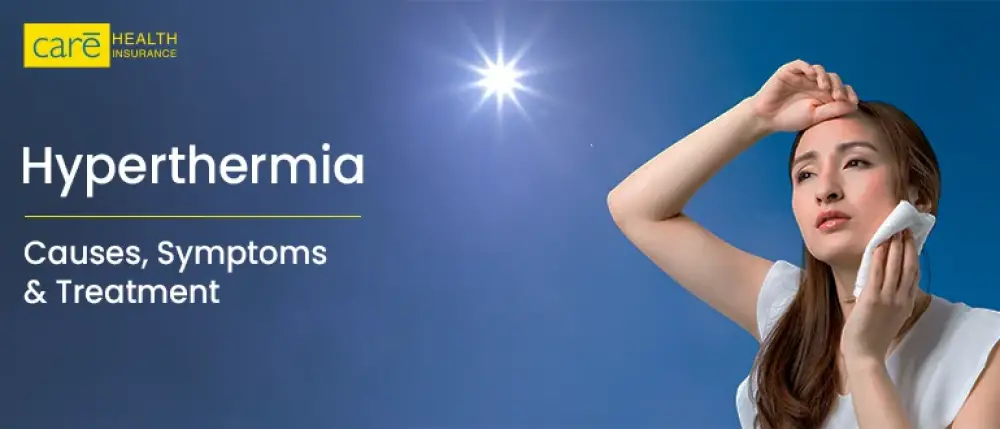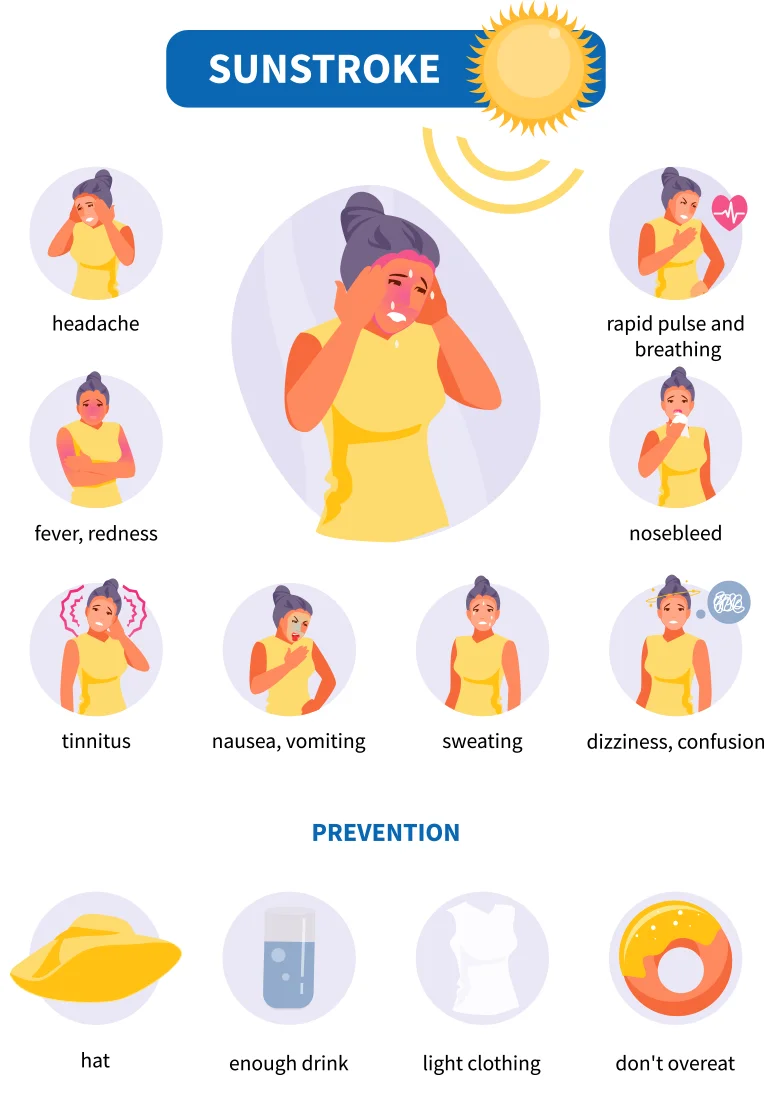Subscribe to get weekly insights
Always stay up to date with our newest articles sent direct to your inbox
Published on 19 Nov, 2024
Updated on 21 Feb, 2025
866 Views
4 min Read

Written by Mudit Handa
favorite0Like
favoriteBe the First to Like
Our body is adapted to maintain an optimal temperature for various life functions. The average body temperature is 37C or 98.5 F. This ability of our body to regulate heat is known as thermoregulation. When we suffer from fever, our body temperature rises above average to produce more heat from killing the pathogens causing infection.
However, several health conditions cause body temperature to rise sharply for longer. One such condition is Hyperthermia.
This article will detail hyperthermia and its symptoms.
Hyperthermia is an abnormal health condition wherein your body's temperature rises above the normal range. This happens often because of some external factors or the body's inability to balance the internal heat levels.

There are no known cases where Hyperthermia has been observed as the root cause of any cancer.
There is a very complex relationship between cancer and hyperthermia. While hyperthermia doesn't directly cause cancer, it's being explored as a potential therapy for the treatment of some cancers along with other therapies. During Hyperthermia cancer treatment, the body temperature rises as high as 113°F with the help of microwaves, radiowaves or heating fluids. This can damage and kill cancer cells without harming normal tissue. Moreover, high body temperature can make malignant cells more susceptible to radiation and chemotherapy. It can also stimulate the immune system to attack cancer cells.
However, in some cases, hyperthermia can be a symptom of advanced cancer. It may form a malignant hyperthermia due to the body's inflammatory response to a tumour.
Malignant Hyperthermia (MH) is a rare health condition which is a potentially life-threatening genetic disorder. It involves a severe reaction to certain medications used for anaesthesia, particularly volatile anaesthetics and the muscle relaxant succinylcholine. This reaction triggers a rapid and uncontrolled increase in body temperature (Hyperthermia), muscle rigidity, and other serious complications.
Since Malignant Hyperthermia is scarce, its actual cause is unknown. However, it is generally caused by a rapid onset of triggering agents after surgery. Accordingly, here are some possible causes behind the occurrence of malignant Hyperthermia:
Given below are some symptoms that indicate the possibility of malignant hyperthermia:
So, if you experience any/all of the symptoms one by one, there is a high possibility that you are suffering from malignant hyperthermia. In such a case, you must immediately consult a cancer specialist.
If you notice any of the symptoms of malignant hyperthermia mentioned above, you must immediately initiate its treatment. Here are some of the apparent measures for malignant hyperthermia treatment:
These are some effective treatment techniques against malignant hyperthermia.
Despite its severity, this condition can be easily prevented upon early detection of symptoms. Here are some ways to prevent malignant hyperthermia:
MH is a rare but severe condition.
>>Read More: How Dangerous is Cervical Cancer? Everything You Need to Know
It is always a wise decision ideal to prearrange adequate health coverage for major critical diseases such as cancer. The best way to do so is to buy the Care Cancer Mediclaim Plan, which guarantees comprehensive coverage of defined cancer. It provides coverage for all types of cancers, except a few that are caused due to genetic factors. Exploring different medical insurance policies can help you choose the right coverage that meets your needs and ensures financial security during medical emergencies. Without a second thought, you should get yourself and your family covered for cancer today itself and live a life free of the stress of unanticipated medical costs.
Disclaimer: Verifying the policy details and coverage with the official policy documents is essential. Also, kindly consult a professional medical expert to verify the details of health concerns.
favoriteBe the First to Like
Thyroid : मामूली नहीं हैं महिलाओं में थायराइड होना, जानें इसके लक्षण और घरेलू उपचार Vipul Tiwary in Diseases
शुगर कंट्रोल कैसे करे? जानें, डायबिटीज में क्या खाना चाहिए Vipul Tiwary in Health & Wellness
हाई ब्लड प्रेशर को तुरंत कंट्रोल कैसे करें? देखें इसके उपाय Vipul Tiwary in Diseases
पैरों में दर्द किस कमी से होता है? जानें, इसके घरेलू इलाज Vipul Tiwary in Health Insurance Articles
Cold Hands? Act Immediately Against Raynaud’s Phenomenon Jagriti Chakraborty in Diseases
Understanding Azotemia: Meaning, Causes, Treatment & ICD 10 Guide Leena Khowal in Diseases
Leukaemia vs. Lymphoma Breakdown: What Sets Them Apart Leena Khowal in Diseases
When Silent Clots Threaten Your Life: DVT Pratham Gupta in Diseases
Always stay up to date with our newest articles sent direct to your inbox
Loading...